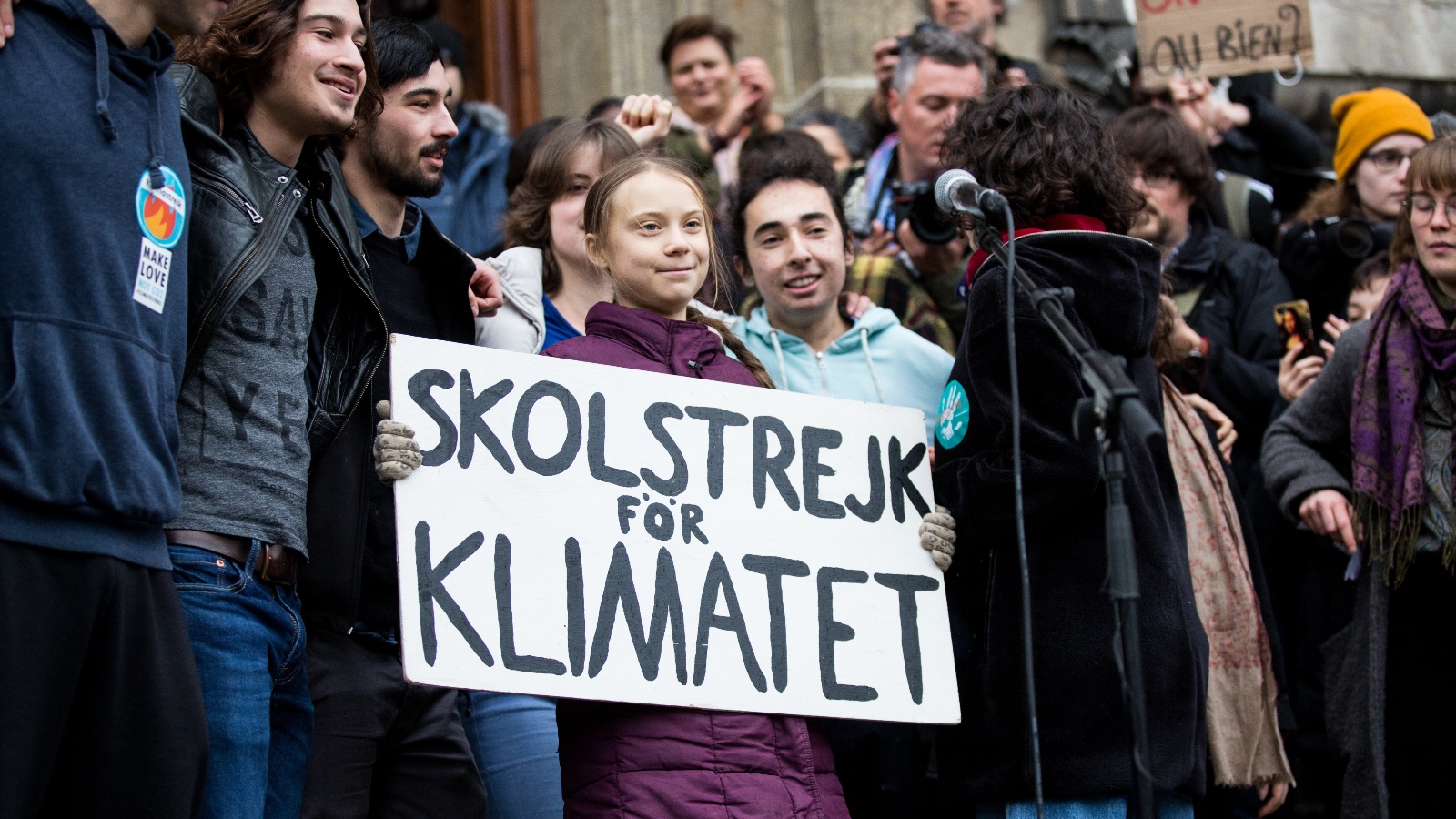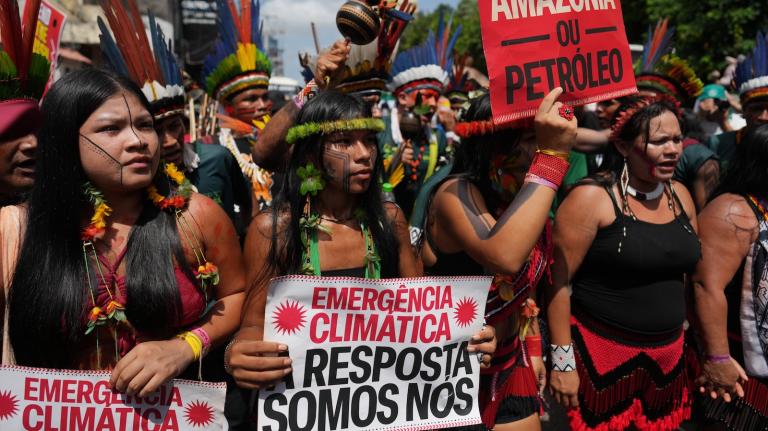On Friday, Greta Thunberg graduated from high school and participated in her final school strike for the climate. The iconic 20-year-old Swedish activist vowed to keep protesting on Fridays, even though she won’t be technically striking from school.
“The fight has only just begun,” Thunberg wrote in an announcement on Twitter on Friday.
Thunberg began skipping school in 2018 to sit outside the Swedish Parliament building as a form of climate protest. She quickly attracted attention from the press and solidarity from other students similarly frustrated by their governments’ lack of action on climate change. Within a year, millions of young people around the world were skipping school on Friday to take part in protests affiliated with Thunberg’s “Fridays for Future” movement.
Building on this momentum, Thunberg took a year off from school to pursue climate activism. In August 2019, she sailed for two weeks on a zero-emissions yacht across the Atlantic to speak at the U.N. Climate Action Summit in New York City. There, she blasted world leaders for failing to address a global crisis that will irreparably harm the lives of young people and future generations.
“I shouldn’t be up here. I should be back in school on the other side of the ocean,” Thunberg told policymakers. “You are failing us. But the young people are starting to understand your betrayal. The eyes of all future generations are upon you.”
Three days before the summit, millions of young people and other activists in more than 160 countries took to the streets in a global climate strike led by the Fridays for Future movement that was likely the largest coordinated climate protest in world history. A few months later, Thunberg spoke at the U.N. COP25 climate summit in Spain. That year, she was named Time Magazine’s Person of the Year and nominated for a Nobel Peace Prize.
Fridays for Future joined a rising tide of youth-led climate activism in the late 2010s, along with groups like the Sunrise Movement and Zero Hour. Though the arrival of COVID-19 forced protests to move online in 2020, Fridays for Future school strikes are still alive and well. The group is currently organizing a global climate strike in September.
Thunberg remains active in climate activism. In January this year, she was detained by police in Germany at a protest against the expansion of a coal mine attended by tens of thousands of people. In March, Thunberg joined Indigenous Sámi youth to protest an illegal wind farm in Norway. She regularly makes headlines for taking positions on prominent issues — for example, arguing against Germany’s use of coal in its phaseout of nuclear power and decrying Russia’s apparent bombing of a dam in Ukraine.
But some advocates have noted that the media’s spotlight on Thunberg often comes at the exclusion of young climate activists from the Global South. In a particularly damning example, the Associated Press cropped Ugandan climate activist Vanessa Nakate out of a photo of climate activists including Thunberg in 2020.
“Frustratingly, these other activists are often referred to in the media as the ‘Greta Thunberg’ of their country, or are said to be following in her footsteps, even in cases where they began their public activism long before she started hers,” writer Chika Unigwe observed in The Guardian. Over the years, Thunberg has asked reporters to focus on climate activists from other countries.
The end of school strikes is one of a few recent shifts in Thunberg’s activism. She chose to not attend either COP26 or COP27, the last two major U.N. climate conferences in Scotland and Egypt, respectively, saying, “the COPs are not really working, unless of course we use them as an opportunity to mobilize.”
“Much has changed since we started, and yet we have much further to go,” Thunberg wrote on Twitter on Friday. “We are still moving in the wrong direction, where those in power are allowed to sacrifice marginalized and affected people and the planet in the name of greed, profit and economic growth.”




